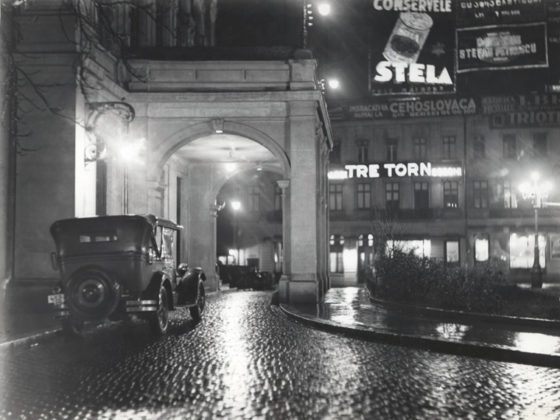We have talked about Romanian authors before a bunch of times, but this time we’re bringing something new to the table: a series of articles which aim to bring to readers’ attention Romanian-born authors who write in other languages than Romanian, authors whose work has been appreciated, awarded and translated into other languages as well.
Herta Müller (German)
Writer Herta Müller had been an established and awarded writer for almost 30 years when she won the Nobel Prize in Literature in 2009. Born in Timiș County, in a Banat Swabian family, she finally managed to leave Romania in 1987 and settled in West Berlin. Her books, translated into more than 20 languages, depict the effects of violence, misery and cruelty that she herself experienced under the opresive regime of Ceaușescu. Atemschaukel (The Hunger Angel), her most accomplished work, depicts the deportation of Romania’s German minority to the Soviet gulags to be used as German forced labour, during the Soviet occupation of Romania.
Mira Feticu (Dutch)
Born in Breaza, Mira Feticu made her debut in 1993 with a poetry collection and published her first short story collection Femei cu veverițe (Women with squirrels) in 2001. From 2012 Feticu has been writing in Dutch, and while her first books Lief kind van mij (Sweet Child of Mine) and De ziekte van Kortjakje (Kortjakje’s Disease) focused on Romanian immigrants who can’t settle down in the Netherlands, her subsequent volumes are more varied in themes. Her most recent book, published in 2021, Liefdesverklaring aan de Nederlandse taal (Declaration of Love to the Dutch Language) tells the story of her greatest adventure so far, mastering the Dutch language and was nominated for the Littéraire Witteprijs 2022.
Dana Grigorcea (German)
A 2022 laureate of the Schweizer Literaturpreise, Dana Grigorcea was born in Bucharest, but has been living in Zurich since 2007. She works as a journalist and a writer, and made her debut in literature in 2011 with Baba Rada: Das Leben ist vergänglich wie die Kopfhaare and has since wrote other novels and children books in German. Her most recent novel, Die Nicht Sterben (Those Who Don’t Die) blends reality and fairytale, with a touch of thriller, and focuses on everyday life of Romanian society before and after Ceaușescu. It has received stellar reviews in the German-speaking countries, while the German TV channel MDR called it “the ultimate Dracula story for the 21st century”.
Attila Bartis (Hungarian)
Writer, photographer and dramatist Attila Bartis was born in Târgu Mureș and left Romania at 16, settling in Budapest with his father. His first novel was published in 1995 and he followed it with a short story collection, but it was in 2001, when he published A nyugalom (Tranquility), considered his best work to date, that he became more prominent. The novel has been made into a film and a theater play that Bartis adapted himself. Set in communist-era Budapest, Tranquility is a psychological novel that follows a writer and his dysfunctional relationship with his mother and other women.
Irina Teodorescu (French)
Born in 1979, Irina Teodorescu left to France in 1998, where she’s worked as a graphic designer and started a small communication agency with two friends. She’s written four novels to date, and it is actually her first one, published in 2014, La Malédiction du bandit moustachu (The Curse of the Moustached Bandit) that drew the attention of Le Figaro littéraire, which named her one of the ten new people to watch in the 2014 literary season. The novel, a picaresque saga that centers around a mustachioed bandit, a sort of Romanian Robin Hood, won Teodorescu two literary prizes in 2014.
Featured image: Yannick Pulver / Unsplash











